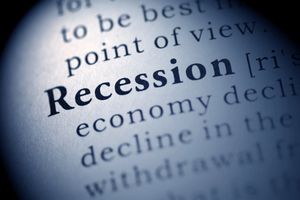The "Brazil Construction Industry Databook Series - Market Size & Forecast by Value & Volume, 40+ Market Segments Across Residential, Commercial, Industrial, Institutional, Infrastructure, City-Level Construction by Value and Cost Structure, Q4 2025 Update" report has been added to ResearchAndMarkets.com's offering.
The construction market in Brazil is expected to grow by 5.1% on annual basis to reach BRL 707.59 billion in 2025.
The construction market in the country experienced robust growth during 2020-2024, achieving a CAGR of 9.1%. This upward trajectory is expected to continue, with the market forecast to grow at a CAGR of 4.3% during 2025-2029. By the end of 2029, the construction sector is projected to expand from its 2024 value of BRL 673.07 billion to approximately BRL 878.72 billion.
This report provides a detailed data-centric analysis of the construction sector in Brazil, offering a comprehensive view of market opportunities in the building and infrastructure construction industry at the country level. With over 100+ KPIs covering growth dynamics in building and infrastructure construction, construction cost structure analysis, and analysis by key cities in the country, this databook provides a wealth of data-centric analysis with charts and tables, ensuring stakeholders are fully informed.
It offers a comprehensive analysis of market dynamics in the construction sector through a range of KPIs such as value, volume, and number of units. The building construction covers detailed segmentation over 30+ segments in residential, commercial, industrial, and institutional sectors. The analyst's research methodology is based on industry best practices. Its unbiased analysis leverages a proprietary analytics platform to offer a detailed view of emerging business and investment market opportunities.
Key Insights
Brazil Residential Construction Industry
Rising inflation and increasing material costs continue challenging Brazil's residential construction sector, making housing projects more expensive and slowing development. Despite this, strong demand for affordable housing, driven by urbanization and population growth, has led the government to revitalize Minha Casa, Minha Vida (MCMV), which provides subsidies and financial incentives for low- and middle-income families. However, ongoing risks such as land scarcity in major cities, bureaucratic delays, and economic volatility add uncertainty to the sector, making large-scale projects harder to execute efficiently.
Investment in affordable and luxury housing is growing, with the government prioritizing social housing programs while the private sector focuses on high-end condominiums and mixed-use developments. Public-private partnerships (PPPs) are increasing, particularly in mid-income housing projects, ensuring better financing and resource allocation. Meanwhile, new policies encourage green-certified housing and energy efficiency standards, supporting sustainability initiatives in residential construction. However, regulatory inefficiencies and a shortage of skilled labor remain barriers to meeting Brazil's expanding housing demand.
Brazil Commercial Construction Industry
Rising inflation and high borrowing costs have significantly impacted Brazil's commercial construction sector, making large-scale projects more expensive and slowing new developments. Developers are struggling with higher material and labor costs, which have led to delays and increased financial risks. Despite these challenges, demand for flexible office spaces and multi-use commercial hubs is growing, particularly in major cities like Sao Paulo, Rio de Janeiro, and Brasilia, where hybrid work models and e-commerce-driven retail expansion are reshaping commercial real estate.
To support economic growth, developers prioritize multi-use projects that integrate retail, office, and residential spaces, creating dynamic urban centers. Notable projects like the Sao Paulo Corporate Towers Expansion and the Porto Maravilha Revitalization Project demonstrate the sector's shift toward modern, sustainable developments. However, high office vacancy rates and foreign investment uncertainty remain key challenges, leading to increased conversions of underutilized office spaces into mixed-use properties, aligning with changing market demands.
Brazil's Institutional Construction Industry
Rising inflation and high interest rates have made institutional construction projects in healthcare, education, and government infrastructure increasingly expensive, limiting large-scale investments. The government faces budget constraints and regulatory inefficiencies, which have slowed the pace of new hospital and school developments. Despite these financial pressures, demand for institutional facilities continues to grow, driven by population expansion and the need for improved public services.
The government prioritizes hospital expansions, school modernizations, and administrative building upgrades to enhance service delivery, particularly in underserved regions. Key initiatives such as the Sao Paulo State Hospital Network Expansion and the National Higher Education Infrastructure Program are helping to address capacity gaps in the healthcare and education sectors. However, many regional and rural projects are experiencing delays due to funding shortages and bureaucratic challenges, limiting development outside major cities.
Brazil Industrial Construction Industry
Brazil's industrial construction sector presents strong growth opportunities, particularly in logistics, manufacturing, and renewable energy infrastructure. The demand for modern warehouses, battery production facilities, and clean energy plants drives significant private and public investments, positioning Brazil as an emerging industrial hub in Latin America. However, rising material costs, high interest rates, and bureaucratic delays challenge project execution and financial feasibility. Addressing infrastructure gaps and regulatory inefficiencies will be crucial in ensuring the long-term sustainability and competitiveness of the sector.
Government policies and tax incentives for industrial modernization, automation, and sustainability are creating favorable conditions for investment, particularly in green energy and high-tech manufacturing. However, workforce shortages in skilled trades and emerging technologies may limit industrial expansion and prolong project timelines. Brazil must strengthen vocational training programs and improve infrastructure connectivity to sustain growth, enabling businesses to capitalize on industrial opportunities. Companies that leverage technological advancements, adopt sustainability initiatives, and navigate regulatory challenges effectively will be best positioned to thrive in Brazil's evolving industrial market.
Brazil Infrastructure Construction Industry
Brazil's infrastructure construction sector is experiencing steady expansion, with significant transportation, energy, and digital connectivity investments. Infrastructure development remains a national priority despite macroeconomic challenges such as high inflation, interest rates, and regulatory delays. The private sector's growing involvement through public-private partnerships (PPPs) and foreign direct investment (FDI) is helping to bridge funding gaps, particularly in rail, port, and renewable energy projects. However, bureaucratic inefficiencies and environmental permitting challenges continue slowing project execution, requiring further regulatory reforms to streamline approvals and improve efficiency.
The integration of smart technologies, green infrastructure, and climate-resilient construction techniques is shaping the future of Brazil's infrastructure industry. Adopting AI, digital twins, and smart traffic management systems enhances operational efficiency, while investments in low-emission transport and renewable energy align with global sustainability goals. However, workforce shortages in specialized fields such as renewable energy and digital infrastructure pose a long-term challenge. Addressing these gaps through vocational training programs and workforce development initiatives will ensure Brazil's infrastructure remains competitive and resilient in the years ahead.
Report Scope: This report provides market size and forecast across 40+ construction segments for ten years from 2020-2029 in Brazil
- Brazil Economic Indicators
- Brazil Top Cities Construction Data
- Brazil Residential Building Construction Coverage: 10-year market size & forecast in value and volume (area and units) terms
- Brazil Residential Green Building Construction Coverage: 10-year market size & forecast in value and volume (area and units) terms
- Brazil Commercial Building Construction Coverage: 10-year market size & forecast in value and volume (area and units) terms
- Brazil Commercial Green Building Construction Coverage: 10-year market size & forecast in value and volume (area and units) terms
- Brazil Industrial Green Building Construction Coverage: 10-year market size & forecast in value and volume (area and units)
- Brazil Institutional Building Construction Coverage: 10-year market size & forecast in value and volume (area and units) terms
- Brazil Institutional Green Building Construction Coverage: 10-year market size & forecast in value and volume (area and units) terms
- Brazil Infrastructure Construction Sectors: 10-year market size & forecast in value terms
- Brazil Green Infrastructure Construction: 10-year market size & forecast in value terms
- Brazil Construction Cost Structure Analysis: 10-year market size & forecast in value terms
For more information about this report visit https://www.researchandmarkets.com/r/48rm8f
About ResearchAndMarkets.com
ResearchAndMarkets.com is the world's leading source for international market research reports and market data. We provide you with the latest data on international and regional markets, key industries, the top companies, new products and the latest trends.
View source version on businesswire.com: https://www.businesswire.com/news/home/20251118666132/en/
Contacts
ResearchAndMarkets.com
Laura Wood, Senior Press Manager
press@researchandmarkets.com
For E.S.T Office Hours Call 1-917-300-0470
For U.S./ CAN Toll Free Call 1-800-526-8630
For GMT Office Hours Call +353-1-416-8900








